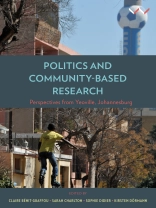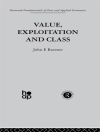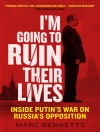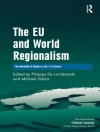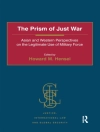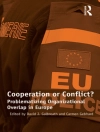Politics and Community-Based Research: Perspectives from Yeoville Studio, Johannesburg provides a textured analysis of a contested urban space that will resonate with other contested urban spaces around the world and challenges researchers involved in such spaces to work in creative and politicised ways.
This edited collection is built around the experiences of Yeoville Studio, a research initiative based at the School of Architecture and Planning at the University of the Witwatersrand, Johannesburg. Through themed, illustrated stories of the people and places of Yeoville, the book presents a nuanced portrait of the vibrance and complexity of a post-apartheid, peri-central neighbourhood that has often been characterised as a ‘slum’ in Johannesburg. These narratives are interwoven with theoretical chapters by scholars from a diversity of disciplinary backgrounds, reflecting on the empirical experiences of the Studio and examining academic research processes. These chapters unpack the engagement of the Studio in Yeoville, including issues of trust, the need to align policy with lived realities and social needs, the political dimensions of the knowledge produced and the ways in which this knowledge was, and could be used.
Cuprins
Acknowledgements
Section A Introducing the book
Chapter 1 Why tell the story of Yeoville Studio? – Claire Bénit-Gbaffou
Chapter 2 Introducing Yeoville: Context and representations – Sophie Didier and Claire Bénit-Gbaffou
Chapter 3 Exploring the politics of community-engaged research – Claire Bénit-Gbaffou
Section B Narrating: The politics of constructing local identities
Chapter 4 Introduction – Sophie Didier
Chapter 5 Being young in Yeoville – Potsiso Phasha
Chapter 6 Africa Week Festival in Yeoville: Reclaiming a social and political space through art – Pauline Guinard
Chapter 7 Love stories – Willy-Claude Hebandjoko, Claire Bénit-Gbaffou and Shahid Vawda
Chapter 8 Constructing Yeoville community: Public meetings, local leadership and managing xenophobic discourse – Claire Bénit-Gbaffou and Eulenda Mkwanazi
Chapter 9 Yeoville as a transgressional space: Voëlvry and the Afrikaner counterculture of the 1980s – Maria Suriano, William Dewar and Clara Pienaar-Lewis
Chapter 10 Leaving Yeoville – Sophie Didier and Ophélie Arrazouaki
Chapter 11 The Yeoville Stories project: Looking for public history in Johannesburg – Sophie Didier and Naomi Roux
Section C Recommending: From understanding micro-politics to imagining policy
Chapter 12 Introduction – Sarah Charlton
Chapter 13 My place in Yeoville: Housing stories – Kirsten Dörmann, Mpho Matsipa and Claire Bénit-Gbaffou
Chapter 14 Urban compounding in Johannesburg – Kirsten Dörmann and Solam Mkhabela
Chapter 15 Community land trusts and social inclusion – Heinz Klug and Neil Klug
Chapter 16 Building stories – Claire Bénit-Gbaffou
Chapter 17 Learning from low-income living in an inner-city suburb to inform policy – Sarah Charlton
Chapter 18 Sharing a flat in Yeoville: Trajectories, experiences, relationships – Simon Sizwe Mayson
Chapter 19 Running a spaza shop – Mamokete Matjomane
Chapter 20 Integrating the ‘community’ in the governance of urban informality at the neighbourhood level – Mamokete Matjomane and Claire Bénit-Gbaffou
Section D Politicising: Community-based research and the politics of knowledge
Chapter 21 Introduction – Claire Bénit-Gbaffou
Chapter 22 Street trader stories – Nicolette Pingo
Chapter 23 Designing with informality: Towards an urban design framework for Yeoville’s main street – Abdul Abed
Chapter 24 Street photography and the politics of representation: A portrait of Muller Street – Claire Bénit-Gbaffou and Sally Gaule
Chapter 25 Knowledge construction in a multidisciplinary perspective: Portraying Natal-Saunders Street – Solam Mkhabela, Claire Bénit-Gbaffou and Kirsten Dörmann
Chapter 26 Knowledge capital and urban community politics in Yeoville – Obvious Katsaura
Chapter 27 Activists in their own words – Eulenda Mkwanazi and Nicolette Pingo
Chapter 28 Knowledge production and the politics of community engagement: Working with informal traders in Yeoville and beyond – Claire Bénit-Gbaffou
Contributors
Photography credits
Acronyms
List of tables and figures
Index
Despre autor
Shahid Vawda is the Archie Mafeje Chair in Critical Humanities and Decoloniality and the director of the School of African and Gender Studies, Anthropology and Linguistics at the University of Cape Town.
